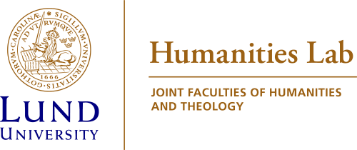Language Learning Roundtable
SLA and Migration: Implications for Theory and Practice
Wednesday August 28, 2019
Speakers:
Sandra Benazzo, Université de Vincennes-Paris 8
Martha Bigelow, University of Minnesota
Jasone Cenoz, University of the Basque Country
Natalia Ganuza, Uppsala University
Martha Young-Scholten, Newcastle University
Discussants:
Kenneth Hyltenstam, Stockholm University
Lourdes Ortega, Georgetown University
Outline
Most studies in SLA research target educated, middle-class adults who have had (long) schooling in their native language. Considerably less empirical work in SLA research focuses on migrants with diverse language and socio-economic backgrounds, and diverse levels of prior education and literacy. In light of the current migration levels, unparalleled since World War II, this is unfortunate. Over one million refugees entered Europe in 2015 (OECD, 2015), and just over one third (35 %) of non-EU-born migrants aged 25-54 had successfully completed at most a lower secondary level of education in 2017 (Eurostat, 2018). The relative lack of empirical studies in SLA research focusing on learners with low levels of education and literacy, and non-Wester-European L1s, has theoretical as well as practical implications. In terms of SLA theory, the focus on (highly) literate learners raises questions about theoretical and empirical generalizability. It remains an open questionto what extent current and past conclusions from SLA also hold for non-literate learners. The LLRT aims to review research on the L2 development of learners with little or no previous schooling, to discuss some of the key notions in the debate, and to identify theoretical and empirical knowledge gaps with implications for SLA research.
Further, the recent migration wave presents new challenges to language teaching practices in terms of the language and educational diversity in such classrooms. Parallel to developments in SLA that involve both a bilingual and a social turn, the field has also seen an interest in the deliberate use of learners’ other languages in teaching practices especially in contexts involving migrant learners, including so-called translanguaging in language education. Questions in this context concerns method, outcomes, and links to the theoretical side of SLA. The LLRT provides a venue for discussing translanguaging and other approaches to teaching individuals with a refugee-background in relation to findings from SLA research that is not primarily educational in nature.
Programme
Film: Real life stories
Section 1 Implications for theory
The first section focuses on un-/low-educated and non-/low-literateL2 learning among migrants and on implications for SLA theory.
Speaker Sandra Benazzo, Université de Vincennes Paris 8
Speaker Martha Young-Scholten, Newcastle University
Discussant Lourdes Ortega, Georgetown University
Refreshments
Section 2: Implications for practice
The second section of the LLRT focuses on research on practice, in particular on language diverse classrooms, so-called heritage-language instruction, and on effects of different teaching practices and approachesin the education of individuals with a refugee-background.
Speaker Natalia Ganuza, Stockholm University;
Speaker Martha Bigelow, University of Minnesota;
Speaker Jasone Cenoz, University of the Basque Country
Discussant Kenneth Hyltenstam, Stockholm University
